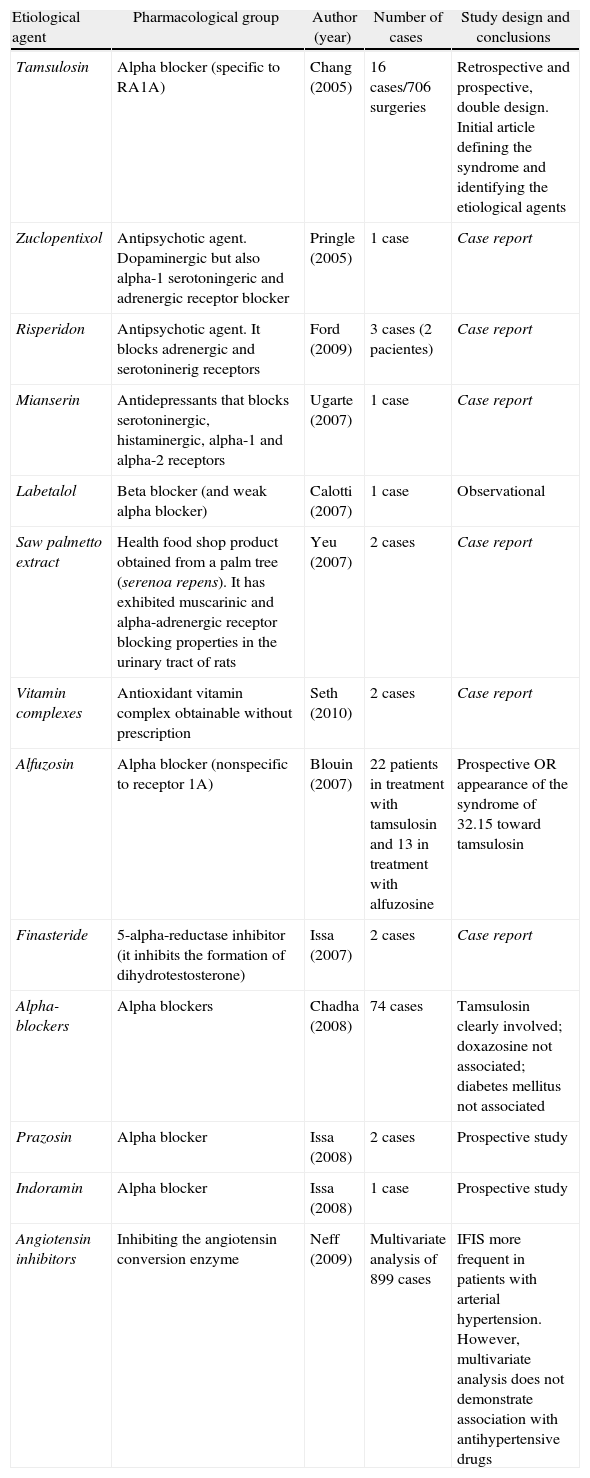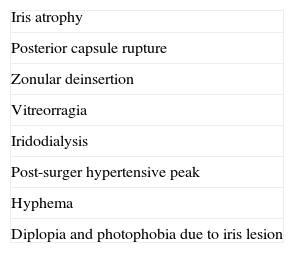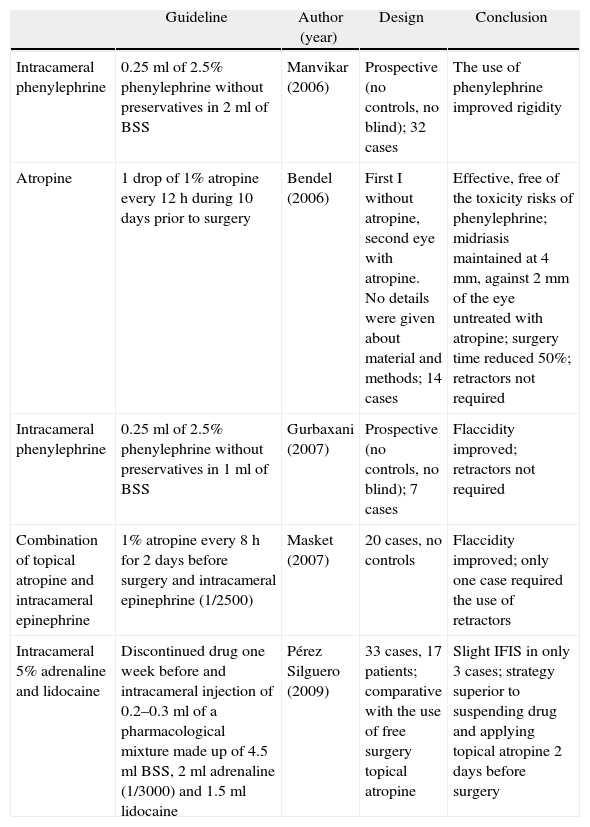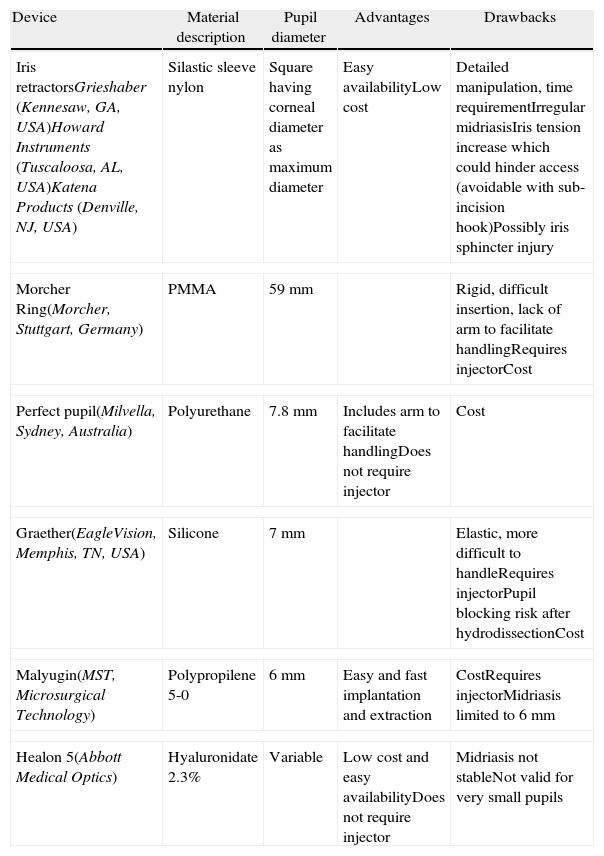Intraoperative-floppy iris syndrome (IFIS) has been recently described. It has been demonstrated that this new syndrome complicates cataract surgery. In this paper we have reviewed the syndrome, and offer practical information specially related to the origin and management of this syndrome and we offer practical information.
Material and methodsA review of the related medical literature using PubMed and Cochrane databases. Combining the search terms tamsulosin, cataract, IFIS and intraoperative floppy iris syndrome, more than 200 articles were found. Eighty-two of them were obtained and analyzed. In the remaining only the abstract could be studied.
ResultsThe aetiological association between IFIS and tamsulosin (and to a lesser degree between IFIS and other alpha-antagonists) is well established. Other aetiological associations are doubtful. Most of the literature is centered on cataract surgery. However, a similar syndrome has been described during trabeculectomy. A possible association between these drugs and choroidal detachments has also been described. Undoubtedly tamsulosin treatment makes cataract surgery more difficult and increases the probability of intraoperative complications. Protocols to manage the syndrome have not yet been developed. Intracameral injection of alpha-adrenergic agonists seems to be useful. However, there is no evidence of the usefulness of discontinuing the drug or using preoperative mydriatics.
ConclusionThe aetiological and clinic features of the syndrome are well established. More studies are needed to provide scientific evidence on the most appropriate way to cope with this syndrome.
Recientemente se ha descrito el síndrome del iris flácido intraoperatorio (IFIS). Este síndrome complica la cirugía de catarata. Con este trabajo pretendemos revisar el síndrome, y ofrecer información práctica, especialmente en relación con los aspectos etiológicos y terapéuticos del mismo.
Material y métodosRevisión de la literatura biomédica relacionada, utilizando las bases de datos PubMed y Cochrane. Combinando los términos tamsulosin, cataract, IFIS e intraoperative floppy iris syndrome se identifican más de 200 artículos. Ochenta y 2 pudieron ser localizados y estudiados. En los restantes se estudió el resumen.
ResultadosLa asociación etiológica con la tamsulosina, y en menor medida con los restantes antagonistas de los receptores alfa, está bien establecida. Otras posibles asociaciones etiológicas son más dudosas. Aunque la mayor parte de los artículos se centran en la cirugía de catarata, también se ha documentado la aparición de un síndrome similar durante trabeculectomía, y se ha descrito la asociación de los antagonistas alfa con desprendimientos coroideos. El consumo de tamsulosina hace más difícil la cirugía de catarata y aumenta la probabilidad de que se produzcan complicaciones. La forma más adecuada de manejar el síndrome no está protocolizada. La inyección intracamerular de un agonista alfa adrenérgico mejora el comportamiento del iris. No existe evidencia científica de que suspender el fármaco o el uso de midriáticos preoperatorios resulte útil.
ConclusionesLos aspectos etiológicos y clínicos del síndrome están bien establecidos. Se precisan estudios que aporten evidencia científica sobre la forma más adecuada de manejar este síndrome.
Artículo
Comprando el artículo el PDF del mismo podrá ser descargado
Precio 19,34 €
Comprar ahora















